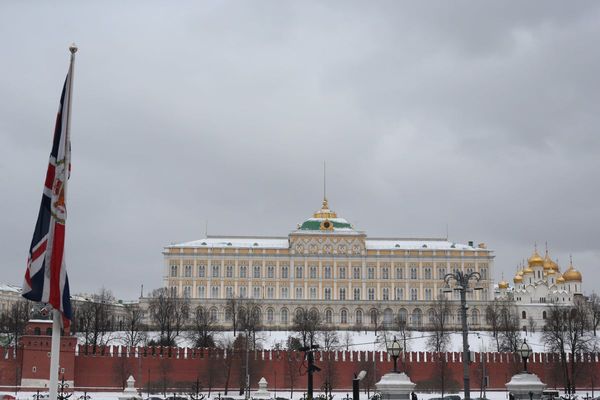
Fellows of the Royal Society of Literature, an august body founded in London in 1820, seemed poised to stride into the new year on a bold footing, with an inclusive programme of events and a revitalised membership. Its Booker prize-winning president, Bernardine Evaristo, alongside poet Daljit Nagra, chair of the society’s leadership council, were promising further modernisation soon.
But a major revolt among longer-term fellows is now threatening to destabilise the society. An overdue council meeting of members next month will be forced to address a spate of resignations and a growing number of complaints.
“There is a lot of turbulence,” recent president Marina Warner told the Observer. “It is a question of a lack of respect for older members and a loss of institutional history, which was something fellows cherished.”
The RSL has not responded officially to public criticism, and did not respond to requests for comment, but this weekend the leadership sent out a letter to alert members to “a concerted campaign of disinformation” and to ask them not to share this “misinformation”.
Set up under the patronage of George IV to “reward literary merit and excite literary talent”, the society, based in Somerset House, still has royal sponsorship from Queen Camilla. But those critical of its recent past speak of a “shambolic” and “clubby” institution – a place intended to shelter elite talent, rather than represent the wider community of accomplished writers.
“The society should not just be for a group of older, rather entitled, people, however distinguished. These problems had to be sorted quickly,” said one new fellow this weekend.

In a speech given last year, Evaristo challenged the assumption that the RSL was still “old-fashioned.” It was, she said, now “very forward-looking, very progressive and committed to inclusion at every level”. Under the day-to-day leadership of director Molly Rosenberg the society has won greater funding and shed its cosy atmosphere.
But those same “radical moves” heralded by Evaristo, designed to make the RSL more relevant and more diverse, have prompted a rebellion. Amid allegations of “scandalous” disregard for proper procedures, a string of resignations has followed the historian and novelist Piers Paul Read’s recent decision to leave in response to an initial call for younger fellows. Among the most recent to go is novelist and biographer Miranda Seymour.
There are fears among members that the strife will soon rival divisions in the Society of Authors, where Philip Pullman stepped down as president last year because he claimed he could not speak freely in the role.
The RSL’s latest efforts to diversify followed Evaristo’s assessment that the charity “needed to change” to become one that is “for all writers, rather than traditionally writers who are white and middle class”, and so last year 62 new fellows were inducted.
Plans for 2024 include a change to the method of electing fellows, who were previously recognised for writing a minimum of two distinguished books. Instead, the public will be invited to recommend writers for fellowship and then a series of broader-based election panels will consider the recommendations.
This is the sort of fundamental switch that unsettles writer Amanda Craig: “It used to be an enormous honour to become a fellow. But when people are just starting their writing careers, it is not the same.”
A former chair of the society, Anne Chisholm, told the Observer: “Of course the RSL, like all venerable institutions, has an imperfect past: it needed to change with the times. My worry is that the pace and style of change has lately been alienating too many fellows and disrespecting the RSL’s history.”
Trouble first flared at an AGM in November, where discussion about public support for Salman Rushdie, the victim of a knife attack, was closed down by the leadership, according to some who attended. Then a decision at Christmas to ditch a completed edition of the society’s annual journal, Review, as well as to say an abrupt goodbye to its editor of seven years, writer Maggie Fergusson, resulted in a wave of dissent. It culminated last week in social media criticism from many authors, including Philip Hensher and Aminatta Forna who questioned the sidelining of the older cohort. Many were shocked by Fergusson’s sudden departure; the RSL says she left by mutual agreement.
Warner, a cultural historian known for her books on art and fairytales, said she had decided not to resign in order to keep her RSL vote. She added that she supported many of the efforts to broaden the RSL’s base.
“There were of course a lot of old, white liberals like me, for historical reasons,” she said, “and while I was president we launched a drive to lower the average age. The problem is a fellowship used to mark an acclaimed career.
“And I was very disappointed too that we did not stand up more for Salman. It should have been nothing to do with his views, or even necessarily admiring his work.”
• This article was amended on 28 January 2024 to remove an incorrect reference to Susannah Herbert.







